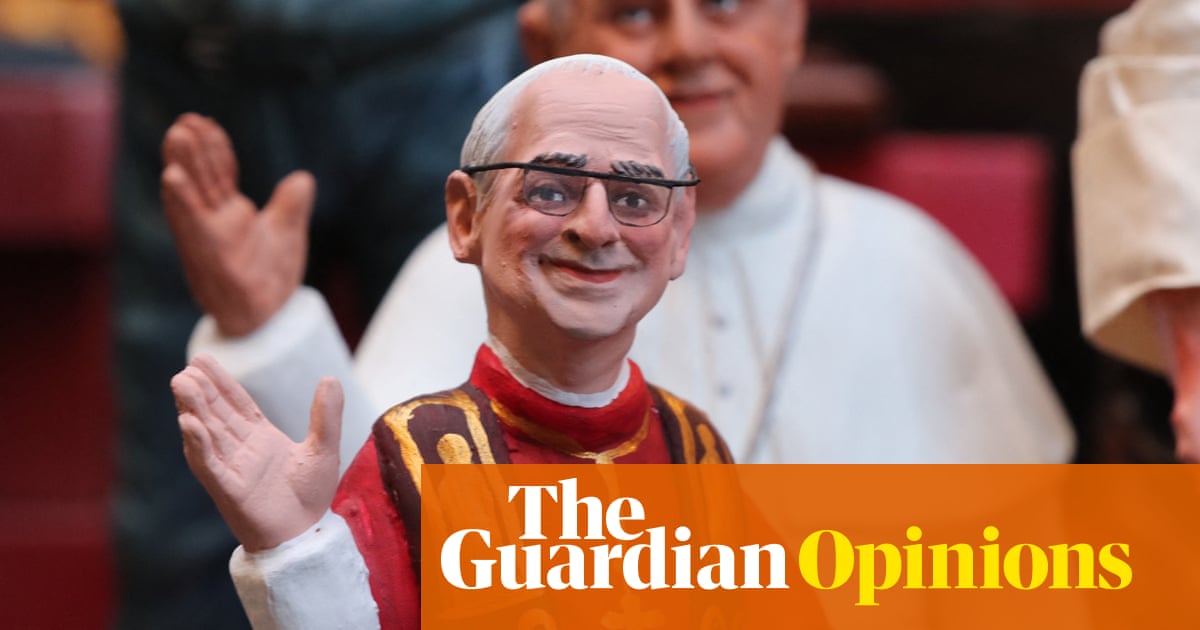While most good Catholics spent the early days of this week in solemn contemplation, praying that the church’s new leader would be a person of character and someone who could unite us in these tense, ungodly times, the rest of us were on X cackling at our screens and repostingchimney memes.
Social media has been having afield daysince Pope Francis passed and the race was on for a new pope. And now that Pope Leo XIV from Chicago has been selected, the jokes have been top-tier – references to the TV show The Bear, videos of the new popewalking outto music by the Chicago legend Chief Keef,Spike Leesomehow making this a win for the New York Knicks – I don’t remember the last time I had this much fun in the hellish digital town square formerly known as Twitter.
Pope Crave, a parody Vatican stan account that started as a fan page for the 2024 film Conclave, has led the charge in keeping everyone updated with a mix of actual reporting and pitch-perfect humor. Now, at almost 100,000 followers, it has become a de facto source for all Vatican news. Pope Crave was the first to report that a new pope had been chosen (sharing the newsbeforethe actual Vatican), and even had a reporter on the ground in Rome to cover the whole thing.
The meme-ification of the new pope is enjoyable on multiple levels, not least of which is the fact that it’s revived one of the last remaining good parts of internet culture: laughing together. Much of my time online these days is spent avoiding trolls, blocking bad-faith actors and trying to reset my algorithm so my feed isn’t just full of rightwing ads (or in Canada’s very specific case, weird fakehit piecesabout Howie Mandel?). Butthis. This is what social media was made for.
The pope memes have picked up on all the best (and most ridiculous) things about this moment: the ritualistic selection process, Leo being the first American to hold the title, the fact that weliterallysaw this movie last year and the new pontiff’s Chicago roots. There’s also just the ridiculousness ofhavinga pope to begin with, and continuing to engage with this kind of decadent ritual while the world burns down around us. This week felt like the kind of nonsectarian, cross-cultural punching up that offers mild respite from our collective and constant disgust at the state of the world. At the same time, it’s an opportunity for real action – Pope Crave’sConclave Charity Zine, for instance, has raised more than $15,000 for charities such as the Intersex Human Rights Fund.
The other great thing about this moment is the ways in which it signals our irreverence and disdain toward institutions like the church. The Catholic church remains one of the most powerful institutions in the world and papal supremacy is an ideal that almost transcends denominations at this point. But it’s also the same institution that has covered up systemic abuse within its ranks for decades, and still holds deeply problematic views on women and queer people.
The arrival of a new pope has come at a time when people are interrogating the distribution of power in the world, when the formerly devout are questioning their faith (no matter what the American religious right would have you believe), and when there’s an urgent sentiment that the global establishment and its supporters (like the church) need to be transformed.
Pope Leo XIV’s ascent is taking place at the cultural intersection of social media obsession, power and religion. But the way we’ve responded to it – the return to our collective ideals that moments like this inspire – gives some meaning to all the pomp and circumstance.
Tayo Bero is a Guardian US columnist
